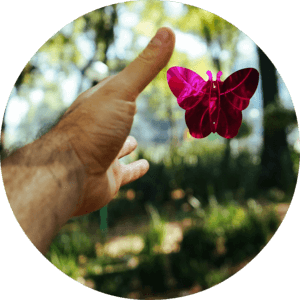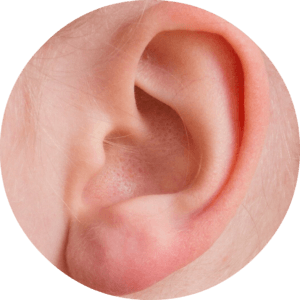There are many people who believe that an addict is just a lazy person with no self-control...
Holistic Addiction Coaching Methods
Holistic Addiction Coaching has become more and more popular in recent decades. Holistic methods have always been used to address addiction, but most often in ethnic or cultural circles that aren’t always associated with western medicine.
Fortunately, recent research has caught up with ancient methods and has begun proving that many holistic methods, which have been used to deal with addiction for centuries, have some basis in biological science as well.
Why choose holistic methods?
These traditional methods tend to be more holistic in nature than a lot of western approaches, which tend to be more of a band-aid fix — they don’t heal the problem, they tend to just cover it up for a while.
Holistic methods – those that are effective – are better for addressing problems for quite a few reasons..
- Holistic modalities tend to approach the problem at its root and actually eliminate it instead of just covering up the symptoms so the problem continues to wreak havoc underneath the medical band-aid.
- Holistic methods usually don’t distinguish between mind and body the same way that western medicine does. Holistic practitioners recognize that a healthy mind cannot truly exist without a healthy body, and thus they aim to treat both mind and body to provide a more comprehensive kind of strategy.
Michael Roth’s holistic modalities with regard to addiction recovery have been featured in major news outlets around the country, including:

What kind of holistic methods are good for addiction?
There are quite a few holistic methods that can be viable for addressing addiction. These are some of the most popular and effective methods from a holistic point.
-
Somato Emotional Repatterning
 Somato Emotional Repatterning, or somatoemotional release, is a therapy method that helps people rid the residual association and energy of traumatic or negative experiences. These experiences can leave emotional scars that can manifest in shame, anxiety, insecurity, and all of these things can lead to addiction if they are not dealt with properly.
Somato Emotional Repatterning, or somatoemotional release, is a therapy method that helps people rid the residual association and energy of traumatic or negative experiences. These experiences can leave emotional scars that can manifest in shame, anxiety, insecurity, and all of these things can lead to addiction if they are not dealt with properly.
Somato Emotional Repatterning is very effective at helping to remove or repattern these emotional charges into something more productive.
This method aims to eliminate this negative energy (which can sometimes be triggered by external situations and can cause a person to engage in destructive coping behaviors) through a holistic mind-body approach that allows patients to identify, access, and release emotions related to past traumas. Read more about Somato Emotional Repatterning here.
Auriculotherapy is a form of therapy that is similar to acupuncture, but is focused on the ear (the auricle) and can be done without the traditional methods requiring the actual puncturing of skin with a needle.
The target areas in the ear that are used in this form of auriculotherapy relate to certain neural pathways. The correct stimulation of these pathways in the proper order can help to eliminate mental imbalances that may have led to addiction in the first place. Read more about auriculotherapy here.
-
Neuro-Linguistic Programming (NLP)
 In the simplest sense, neuro-linguistic programming is a tool that allows you to effectively ‘program’ your mind and brain, often using language as a primary basis. NLP also helps you focus on understanding the language of your mind so that you can work with it in a way conducive to healing.
In the simplest sense, neuro-linguistic programming is a tool that allows you to effectively ‘program’ your mind and brain, often using language as a primary basis. NLP also helps you focus on understanding the language of your mind so that you can work with it in a way conducive to healing.
One of the interesting things about the linguistic aspect of NLP is the way that you will learn to understand different “languages” that you use to communicate. You will be able to deepen your understanding of the way that you communicate with yourself, both consciously and unconsciously, as well as how you communicate with others.
-
Supplements and nutrition
 Many people are aware that proper nutrition and diet can help to offset the damage done to the body by drugs. What many people don’t know is that a proper diet can help prevent people from developing process addictions and chemical addictions, and can help them with their recovery.
Many people are aware that proper nutrition and diet can help to offset the damage done to the body by drugs. What many people don’t know is that a proper diet can help prevent people from developing process addictions and chemical addictions, and can help them with their recovery.
Most users of drugs are self-medicating for some problem that has not been diagnosed. People suffering from process addictions (such as gambling or sex addictions) are usually trying to cope with something. Mental and physical problems are usually caused by some sort of chemical imbalance. Most of these mental or physical imbalances can be corrected (or at least improved) with a healthy lifestyle and proper nutrition.
Identifying the problems that led you to addiction can be absolutely vital in helping you follow a path to recovery. Once you know the problem that you are using your addiction to cope with, we can help you create a plan that will help you move toward overcoming it.
If you or someone you love is struggling with an addiction, please don’t wait. Help is available! Receive confidential help, no matter where you are in the world! Call my office now at (805) 256-0372. Let’s begin working together to break the cycle!






